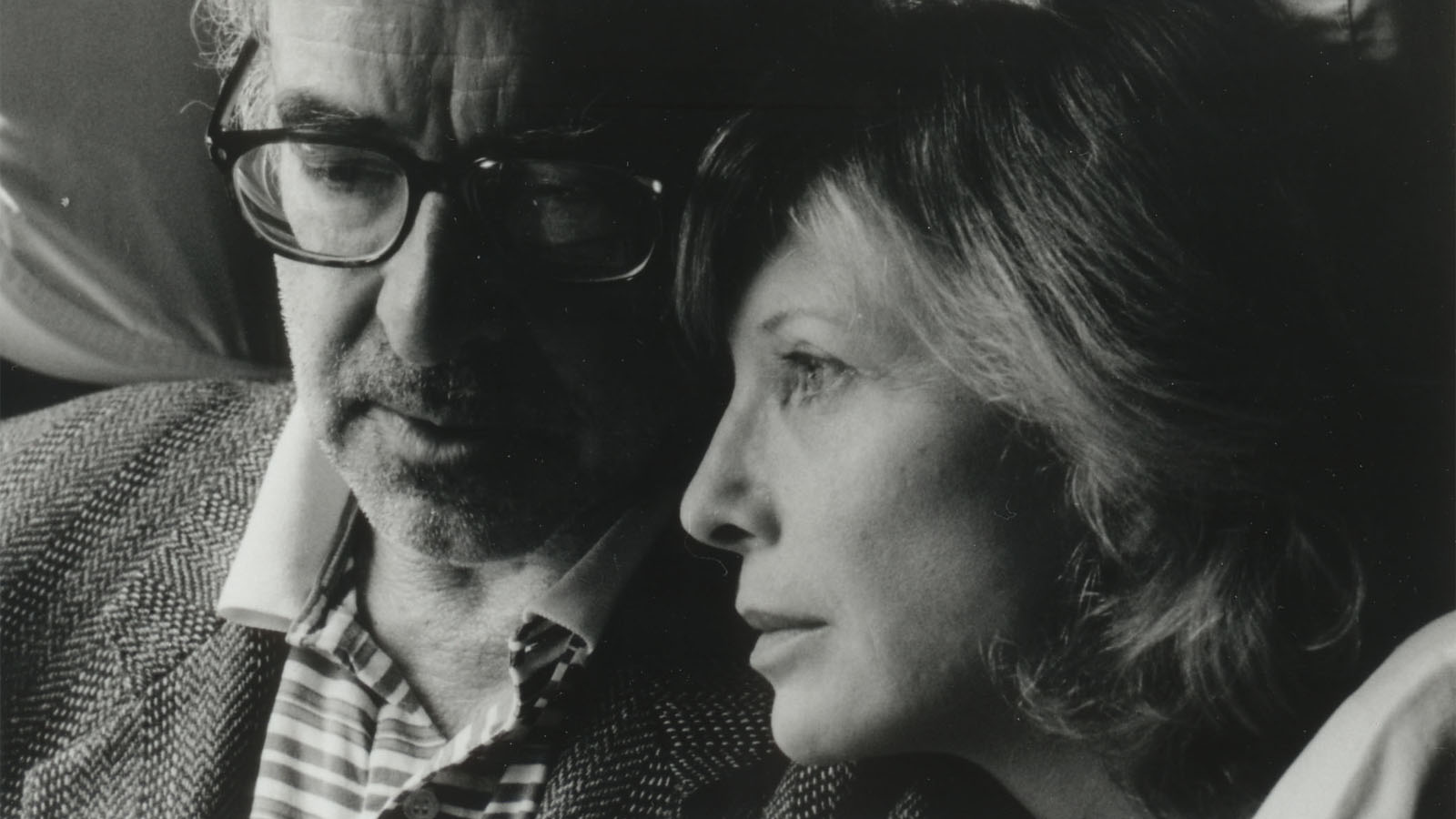Miéville in Brussels and Dorsky in Chicago

The New York Film Festival opens today, and to yesterday’s collection of previews of the fifty-sixth edition we can now add a fresh round of reviews at Screen Slate and A. O. Scott’s overview in the New York Times. And do your eyes a favor with a scroll through the collection of posters for films screening at the NYFF that Adrian Curry has put together for the Notebook. Meantime, since Wednesday’s entry on Orson Welles’s The Other Side of the Wind, Alex Ross has posted a fascinating report for the New Yorker on the film’s reconstruction.
Film culture thrives beyond New York, too, of course, as we see in this week’s round of five highlights:
- In the run-up to next month’s program featuring work by Swiss director, screenwriter, editor, and actress Anne-Marie Miéville at the Cinematek in Brussels, the archive has worked with the programmers at Courtisane and the online publication Sabzian to put together a collection of interviews, letters, and essays by her partner, Jean-Luc Godard, philosopher Jacques Rancière, and film critics Alain Bergala and Jean-Michel Frodon, among others. Introducing Pas de deux, The Cinema of Anne-Marie Miéville, a fifty-five page publication freely accessible here and here,Stoffel Debuysere and Gerard-Jan Claes note that Miéville’s work is “driven by a universal, imperishable question: how to live together?”
- Writing for Film Comment, Sergei Loznitsa (Austerlitz, Donbass) remembers fellow Ukrainian filmmaker Kira Muratova, who fell out of favor with authorities in the 1970s but came roaring back in the 1990s and 2000s. She passed away this summer at the age of eighty-three, having “outlived and outsmarted all those who banned her films, erased her from life; who covered their ears and closed their eyes, and screamed in anger. They were all washed away by the tidal wave of new life, and in their place came fourteen remarkable films, all of which are on the must-see list for anyone who considers himself a film lover.”
- Alain Resnais’s Hiroshima mon amour (1959) is “one of the most important films ever made, summing up many tendencies of modern cinema but also indicating new directions for later filmmakers,” writes David Bordwell in a new blog post. The piece is an expansion of the latest episode of Observations on Film Art, now streaming on the Criterion Channel on FilmStruck (watch a clip), and a deep dive into the structure of the film.
- The “Film 50” is a remarkable portrait of the filmmaking community in Chicago that Ray Pride puts together each year for Newcity. In his conversations with Steve James (Hoop Dreams, America to Me), Bing Liu (Minding the Gap), Stephen Cone (Princess Cyd), Deborah Stratman (The Illinois Parables), Joe Swanberg (Easy), and sixty other movers and shakers of the local scene, what stands out is just how often so many of these Chicagoans mention their collaborations with others who’ve made the list.
- This evening, Nathaniel Dorsky will be at one of Chicago’s prime repertory theaters, Northwestern University’s Block Cinema, to present The Arboretum Cycle, seven short films he shot over the course of a single year in the San Francisco Arboretum. For the Chicago Reader, Ben Sachs has conducted an extraordinarily engaging interview in which the filmmaker discusses his notions of “devotional cinema,” the changing light in the Bay Area, and how he measures a shot. “I was very fortunate with this film,” Dorsky tells Sachs, “because, in a way, the three graces came together on it: the grace of light, the grace of plants, and the grace of cinema. They all became sisters in union.”
For news and items of interest throughout the day, every day, follow @CriterionDaily.



